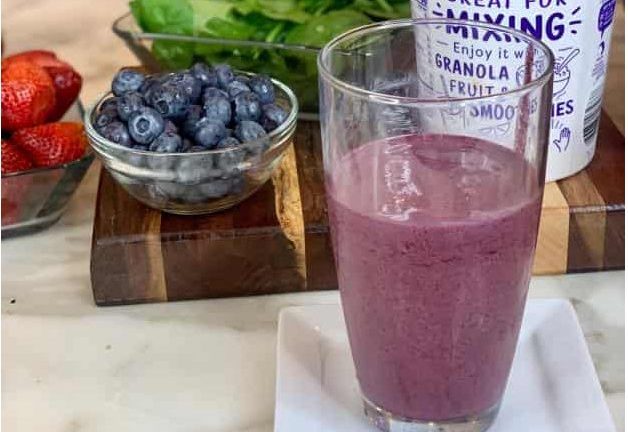Spring has sprung, and so has allergy sufferers’ seasonal woes. The Asthma and Allergy Foundation of America (AAFA) released its 2024 Spring Allergy Capitals report on the worst cities in the U.S. for allergies and found that people in the South, Southeast, and parts of the Midwest tend to have the most issues. Everyone is battling watery or itchy eyes, a runny nose, and constant sneezing.
Mississippians are reaching for OTC medicine to relieve their seasonal allergy symptoms this time of year, and rightfully so. However, research suggests that what you eat can affect your allergies, too. Why not fight the sneeze from every angle possible?
If you have seasonal allergies, it is a sign your immune system is responding to certain types of mold and pollen within the environment. The body perceives them as dangerous invaders and ramps up its defense system to go to battle. Eating nutrient-rich foods regularly is critical to building and maintaining a powerful security squad, which is your immune system.
Here are three anti-congestion foods you should be eating now.
First, protect yourself with probiotics. Probiotics, found in yogurt, contain “live and active” bacteria that, according to research, may help strengthen our immune system. A study published in The World Journal of Gastroenterology showed that probiotic consumption helped decrease the seasonal allergic response to pollen, specifically regarding nasal symptoms—such as a runny or congested nose.
Start your day with a Greek yogurt parfait layered with berries, low-fat granola, and slivered almonds. Greek yogurt gets a bonus point for having twice the amount of muscle-building protein as regular yogurt. The whole family can snack on fresh smoothies using yogurt, frozen fruit, and spinach. Skip the soda and fries and treat your kids to one of the several frozen yogurt shops around town.
Next, double up on vitamin D. Recent research shows that low vitamin D levels are associated with increased allergy symptoms, such as sneezing and sinus infections. Sunlight is the best source of vitamin D, but other good sources include salmon, eggs, fortified cereal, and milk. Try to get 5-15 minutes of direct sunlight daily around noon. Switch out chicken for salmon twice a week. Add a glass of low-fat or fat-free, vitamin D-rich milk to meals or snacks.
You can also spice up mealtime. Researchers say that reaching for spicy foods helps to thin the mucous secretions and can clear nasal passages so that you can breathe easier. Turn up the heat to traditional Mexican dishes by adding one tablespoon of Chili powder plus the juice of a lime. Try the provided Indian-inspired roasted vegetable recipe tonight.
Sweeten things up with local honey. The theory is that local bees collect pollen from local plants and bring it back to the hive, where they make the honey. Since many seasonal allergies are caused by these same plants, eating honey containing pollen can “potentially” combat those allergies. However, most research studies show no significant impact of local honey on allergies. But don’t let that stop you if you get allergy relief from honey purchased nearby. Regardless of the research, buying local honey is a delicious way to support farmers and the regional ecosystem.
Bottom line: Next time you think you cannot relieve your seasonal allergy symptoms, take another look at your diet. There might be a delicious way for you to breathe soon!
Indian Inspired Roasted Vegetable
Total Time: 45 – 50 min
Serves: 2-4
Ingredients
- 2 Bell peppers
- 1 Head cauliflower
- 1 Red onion
- 4 Button mushrooms
- 2 tablespoons olive oil
- ½ teaspoon of cumin
- 1 tablespoon curry
- ½ teaspoon of coriander
- Salt and Pepper to taste
Instructions
- Preheat your oven to 400 F.
- Wash your veggies.
- Cut your veggies evenly and place in a medium bowl.
- Toss vegetables in olive oil and spices until evenly covered.
- Line a baking sheet with aluminum foil.
- Add spiced vegetables onto the foil covered baking sheet.
- Place in the oven for 30-45 minutes, checking every 15 minutes with a quick stir.
- Once crisp on the ends, remove and serve immediately or top salads with chilled vegetables.
Lemon Blueberry Smoothie
Ingredients
- 1 cup frozen blueberries (or mixed berries)
- 1 frozen ripe banana
- 1/2 lemon, juiced (about 2 tablespoons fresh lemon juice)
- Zest from 1 lemon
- 1/8 teaspoon almond extract
- ¾ cup plain Greek yogurt
Instructions
In a large high-powered blender, add in all ingredients and blend on high for 1-2 minutes or until all ingredients are well combined. If necessary, add in a splash of milk to thin the smoothie. Garnish with lemon zest and more blueberries and granola (optional).




